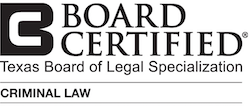DWI Myths
There are many myths regarding what your rights are, and/or what one should do if they may be under the suspicion of Driving While Intoxicated. It has been our experience that the number one prevailing opinion has been regarding the "No Refusal" weekend policies some police departments implement. This leads to many to just simply consenting to a chemical specimen, instead of maintaining their right to refuse.
It is imperative to have an experienced DWI Defense Attorney that can properly evaluate your case. You may want to familiarize yourself with the truth to many common myths regarding DWI cases, some of which include the following"
1. There Nothing to Worry About if I Happen To Blow Under the Legal Limit (of a .08) on a Breath Test or my Blood Specimen comes back below a .08:
Myth: I took the State administered breath test and/or blood test and my "BAC" score was under the legal limit of 0.08, so I can't legally charge me with a DWI, right?
Truth: WRONG. First off, once you are already under arrest, the arresting officer cannot then "un-arrest" you. In all likelihood, they will claim that perhaps the alcohol result was higher than what the score was at the time you were driving. In this instance, the State would likely attempt a retrograde extrapolation to try and interpret what your score would be however long earlier it was when you were operating your motor vehicle. Simply put, The State of Texas does allow for a prosecution of a driver for Driving While Intoxicated even if the breath and/or blood results are less than the legal limit of 0.08. There are three prongs that the State must prove in any DWI case, and it does not have to be a combination of the three elements. As well, they may argue that whatever alcohol may have been in your system, combined with other substances that were obtained somehow as evidence, as a "synergistic" effect of one being guilty of Driving While Intoxicated. Carl David Ceder alone has successfully tried breath test cases that have been as low as .05, and also successfully tried (and gained an acquittal) on a blood test case of a 0.0 following a Trial by Jury. Fortunately, the Jury agreed as to whether the accused was intoxicated, but it did not prevent the State from proceeding with a Jury Trial on the facts they had.
2. Pleading Guilty to a Breath Test:
Myth: I was arrested for a charge of DWI and because my breath test results were over the 0.08 that was administered at the police station where I went to jail, there isn’t any other choice for me other than to plead guilty and deal with the consequences. Right?
Truth: WRONG. It is important to know that just because your breath test results were over the 0.08 limit, it doesn’t mean you are guilty. There are many defenses about the validity of the results of the breath test and the reliability of the machines. Texas utilizes the Intoxilyzer 5000, which has been around since the early 1980's. It is currently, as of the writing of this information, one of only two states out of 50 currently where it is still used. It is an antiquated machine, and assumed many variables, and many reasons might occur that would lead to absolute false-positive result. To view more of these defenses to a Breath Test in Texas, please read HERE. Because of the many defenses regarding the results to determine a DWI, it may be prudent, under the circumstances, for an attorney to file motions to suppress the breath test results - which if had legal merit, could ver much help with the disposition of your case.
3. I Am Now Allowed to Refuse ANY of the STANDARDIZED FIELD SOBRIETY TESTS, CORRECT?
Myth: When instructed by a law enforcement officer, an individual MUST perform the Standardized Field Sobriety Tests - and CANNOT refuse if and when asked to do them. Correct?
Truth: ABSOLUTELY NOT! These "SFST's" are designed for failure. It is often the case where the investigating officer actually does not give the instructions in the manner prescribed - thereby skewing the results. There are also many variables that can affect any given individual's performance, that is actually included in the NHTSA Manual (what police officers are supposed to use when learning to administer the SFST's to those under suspicion of Driving While Intoxicated). Variables that can interfere with obtaining even remotely accurate results would be items such as weather conditions, difficult roadside terrain, age, inexperienced officers delivering the tests, footwear, physical illness and/or injuries, and those who are 50 pounds or more overweight by the National Body Mass Index. When a law enforcement officer instructs you to perform the Standardized Field Sobriety Tests, you are NOT required to do so! Simply put, these tests are DESIGNED FOR FAILURE! Therefore, CHOOSE TO REFUSE!!!
4. The Portable Breath Test (PBT) I blew into on the roadside is just as accurate as the Intoxilyzer 5000 Breath Test administered at the police station, correct?:
Myth: The officer asked me to blow into a handheld device during my traffic stop; this will be the breath test chemical result score that the State will introduce against me in court and/or during a trial. Correct?
Truth: FALSE. The small handheld device a law enforcement officer may have asked you to blow into on the roadside is called the "Portable Breath Test." Usually it is asked to be done right on the roadside. However, these "PBT's" are NOT admissible at a trial as evidence because of how inaccurate and volatile they have shown to be, and therefore the score cannot be utilized against you. For the testing and introduction of the results in a court of law, the Intoxilyzer 5000 is the only machine as of now certified to be used in the State of Texas. The "PBT" does not give the officer an accurate Blood Alcohol Content ("BAC") reading, and the officer may only use the result given to determine whether or not to proceed with further any other Field Sobriety Evaluations, and/or whether to continue with the arrest. The officer can only testify in court that the test was indeed completed, but cannot testify as to what the result was. The officer will likely testify that he/she smelled the odor of alcohol beverage on your breath, will testify possibly to erratic driving observed, usually they will testify the speech was slurred, and/or the individual could not fully multi-task, in the same fashion that someone should ordinarily be able to do if alcohol had not been consumed. They will also likely utilize the results of the Standardized Field Sobriety Tests (provided the suspect attempted to complete them). The arresting officer can, however, testify to any Breath or Blood sample that is obtained (assuming, obviously, that it was done in the proper manner and done according to the requisite protocol). Further reading on how prone to error the Intoxilyzer 5000 can be (let alone the "PBT" score), can be read more full HERE and HERE.
5. The Standardized Field Sobriety Tests are 100% Accurate:
Myth: The Standardized Field Sobriety Evaluations are an incredibly reliable and accurate indicator of the level of a driver’s impairment.
Truth: FALSE. The Standardized Field Sobriety Tests, simply put - ARE DESIGNED FOR FAILURE! Therefore, CHOOSE TO REFUSE! Technically speaking, the most reliable Standardized Field Sobriety Evaluation is the Horizontal Gaze Nystagmus (HGN) Test or "the eye test," which was developed by the NHTSA (National Highway Traffic and Safety Administration.) Even so, it is only 77% reliable when it is performed according EXACTLY to NHTSA protocol. I personally believe it could only be accurate, in only limited circumstances, and even then I would question the validity of the results, if done in a laboratory setting by a properly trained ophthalmologist who is an expert at determining the difference between all forms of Nystagmus, including of course, Horizontal Gaze Nystagmus. I personally find it very difficult to believe it can be done, usually at night, on the roadside, with cars usually passing by, by an investigating officer who likely already has their mind made up on whether or not an arrest will occur.
It is 100% the truth that involuntary jerking of the eyeball (or what is known as Nystagmus) can naturally be present in an individual without even being intoxicated (this is referred to as Natural Occurring Nystagmus). Moreover, the training most investigating officers received is usually a 3-day course in total (where they learn all three of the SFST tests - and only mere hours usually are spent teaching them how to properly conduct a test to possibly observe "Horizontal Gaze Nystagmus" test.
It has been judicially recognized that there are over 38 different causes for Nystagmus that can be present in the eyes, as well as over 47 types - and Texas police officers are only trained to detect just one. Compounded by this, it has been shown that there are over 38 different causes of Nystagmus, as judicially recognized in Schultz v. State, 664 A.2d 60, 62 (Md. Ct. Spec. App. 1995). And even in the best possible scenario when pulled over for suspicion of Driving While Intoxicated, the investigating officers usually do not do any advance research on how to conduct the test in the best possible manner to ensure accurate results EVERY time they administer the test.
As well, because usually it is not recorded for a jury to observe later at a trial, it is totally left up to the interpretation of the investigating officer. Nystagmus itself can occur in many ways - including as a result of trauma, or it can be due to a number of different neurological conditions whether they diagnosed or undiagnosed. The law enforcement officer must perform and score the HGN test in strict accordance of the NHTSA validated protocols. It is important to know when grading your performance it is subjective and based on the law enforcement’s perceived observations of your performance. No matter what the charge is or what is the circumstance, simple choose to refuse the SFST's. They are designed for failure - and only serve to help the investigating officers gather evidence to help secure a conviction.
Again, it is important to emphasize that these "SFST's" are designed for failure! It is often the case where the investigating officer actually does not give the instructions in the manner prescribed - thereby skewing the results. There are also many variables that can affect any given individual's performance, that is actually included in the NHTSA Manual (what police officers are supposed to use when learning to administer the SFST's to those under suspicion of Driving While Intoxicated). Variables that can interfere with obtaining even remotely accurate results would be items such as weather conditions, difficult roadside terrain, age, weight, inexperienced officers delivering the tests, footwear, physical illness, injuries, and many other variables that are too voluminous to mention. When a law enforcement officer instructs you to perform the Standardized Field Sobriety Tests, you are NOT required to do so! Simply put, these tests are DESIGNED FOR FAILURE! Therefore, CHOOSE TO REFUSE!!!
Contact Us Now
You can contact The Law Offices of Carl David Ceder at anytime for assistance at 214.702.CARL(2275) or at 469.2000.DWI(394). You can also e-mail Carl directly, at Carl@CederLaw.com; or to the office for general inquiries at Info@DFWDefenders.com. Phones should be answered 24 hours a day/7 days a week for immediate and prompt assistance. E-mail messages will try to be responded to with 24-48 hours, depending on whether Carl and his team is in trial and/or is busy working on a case for a contested hearing.




















